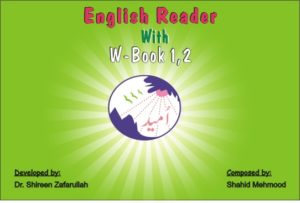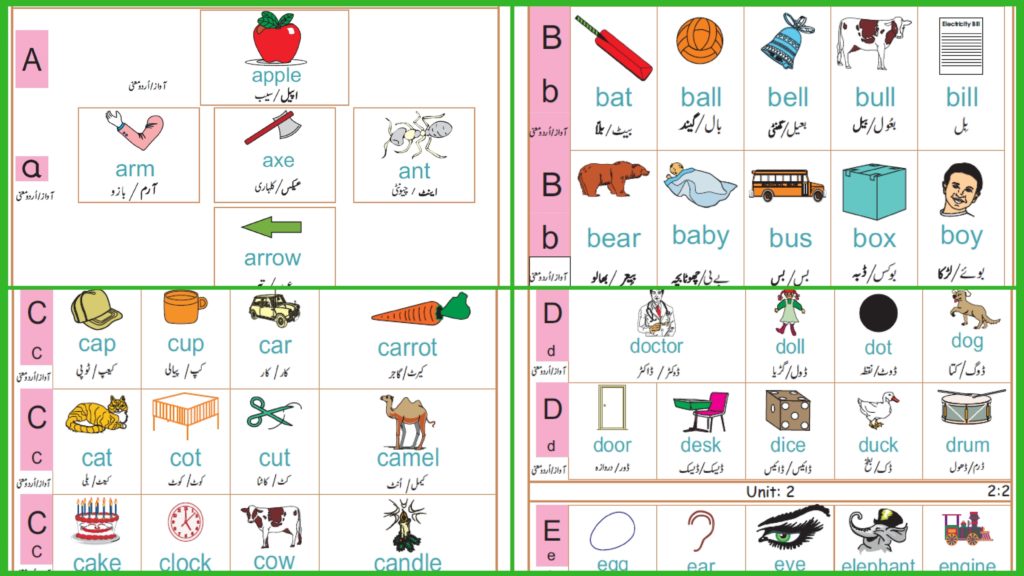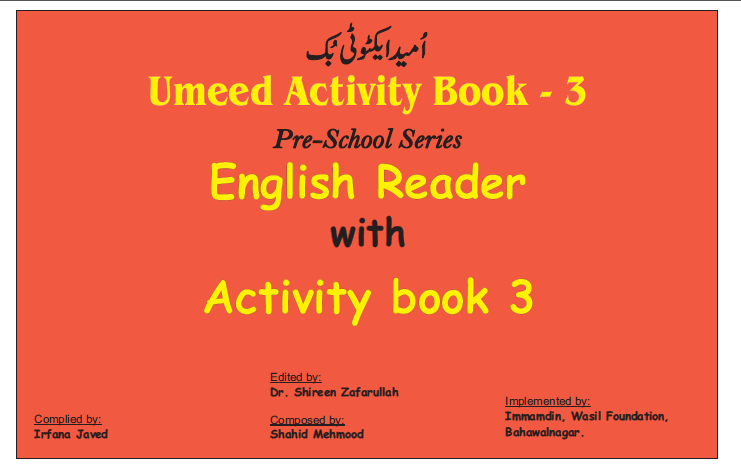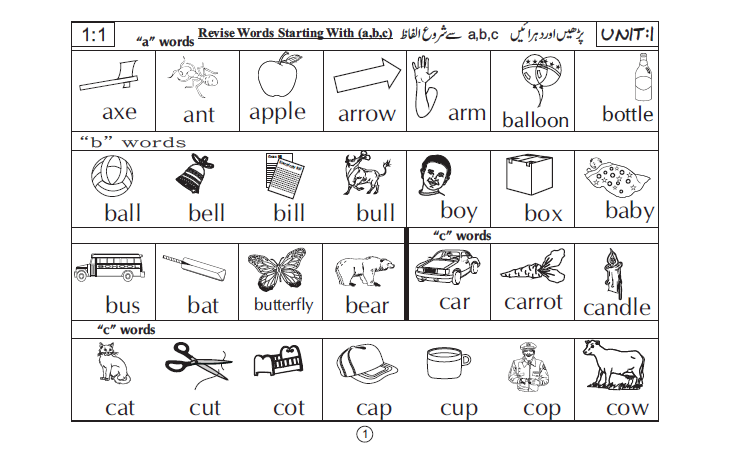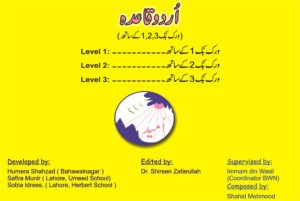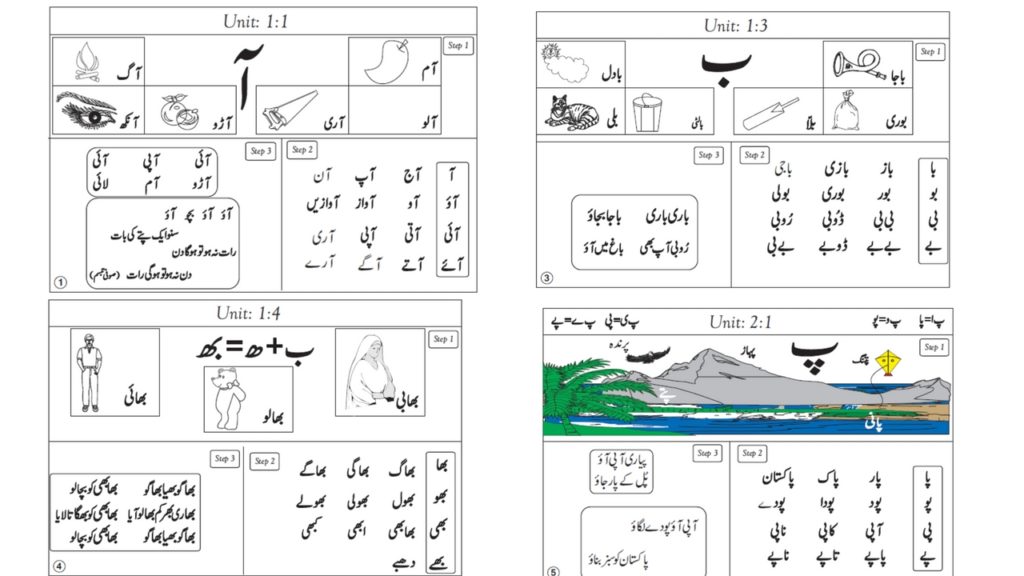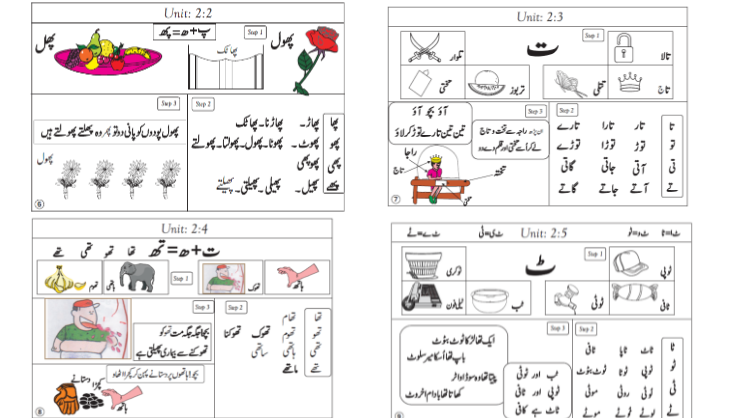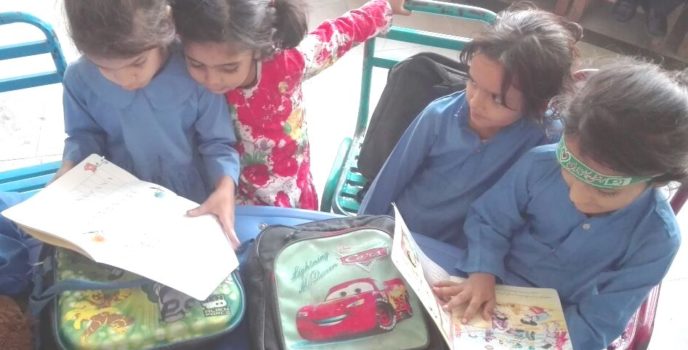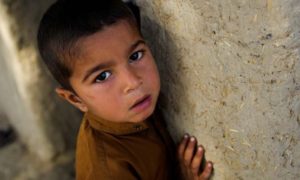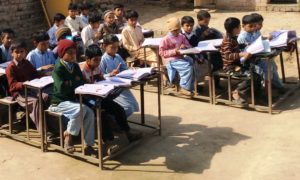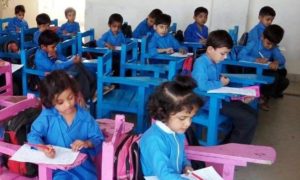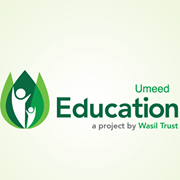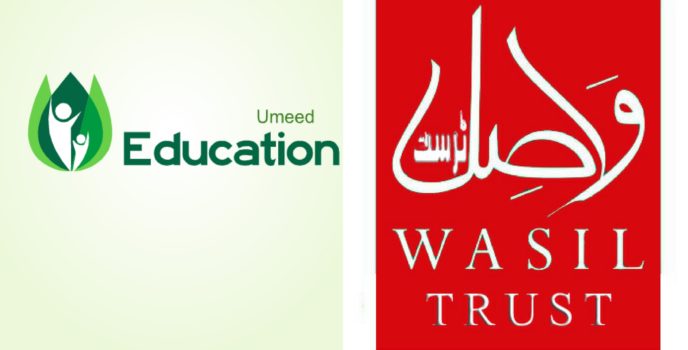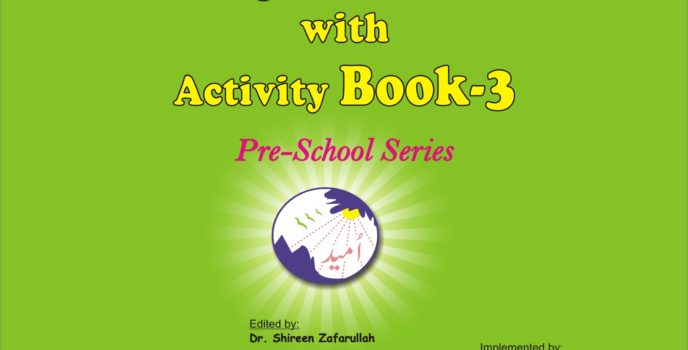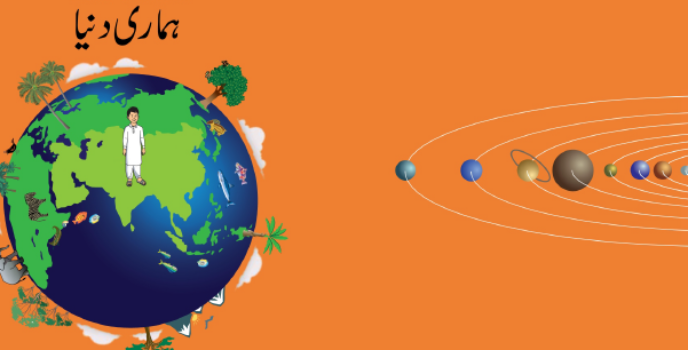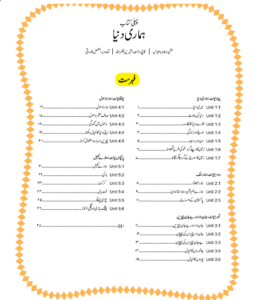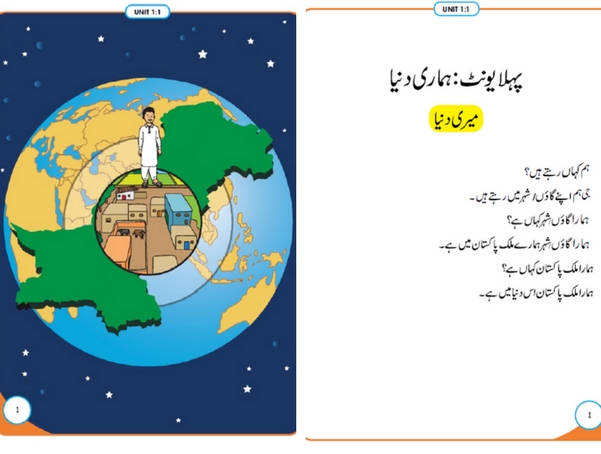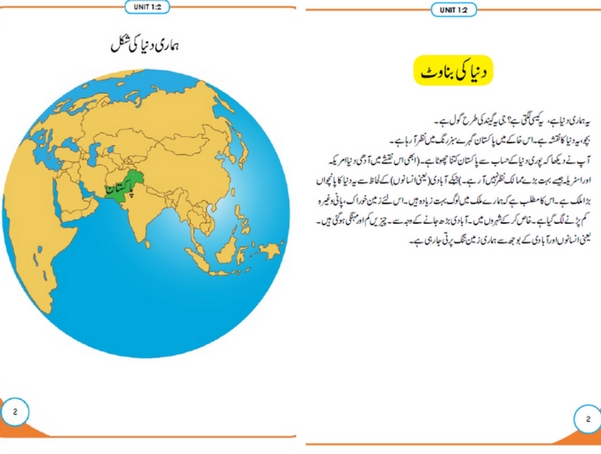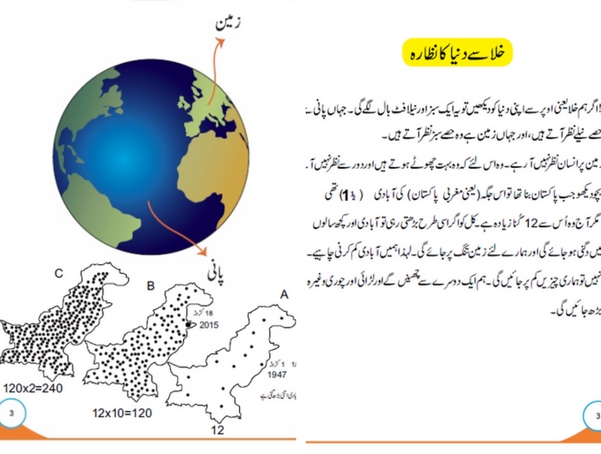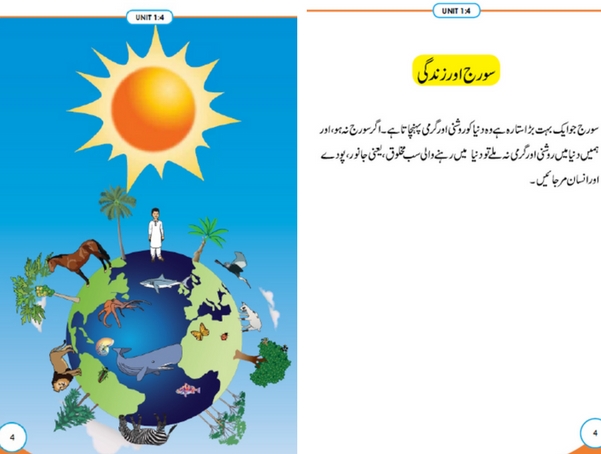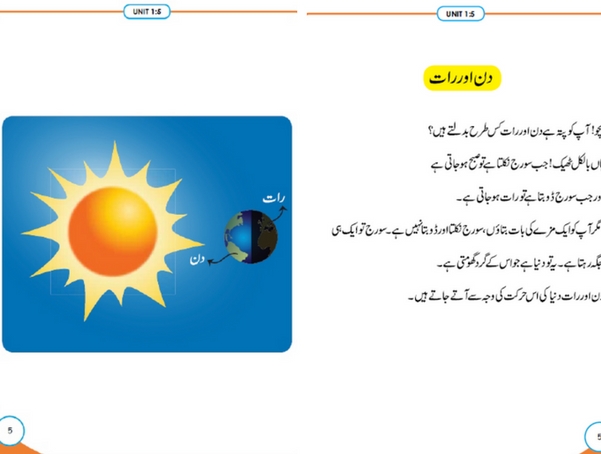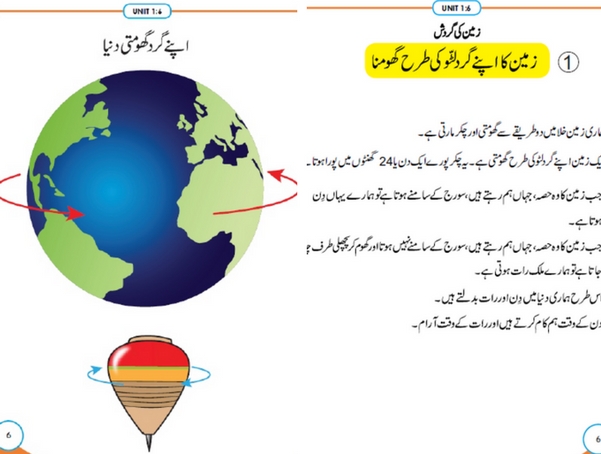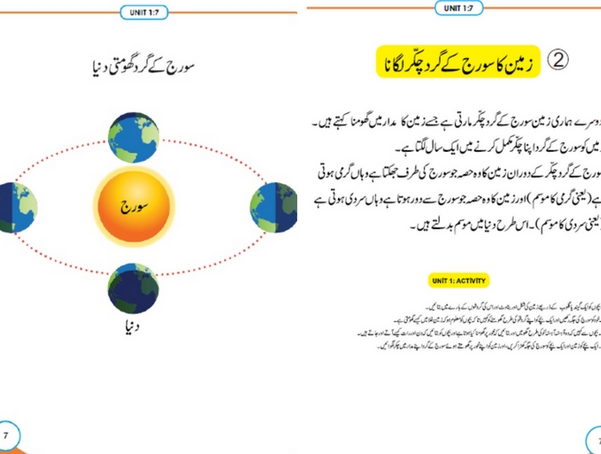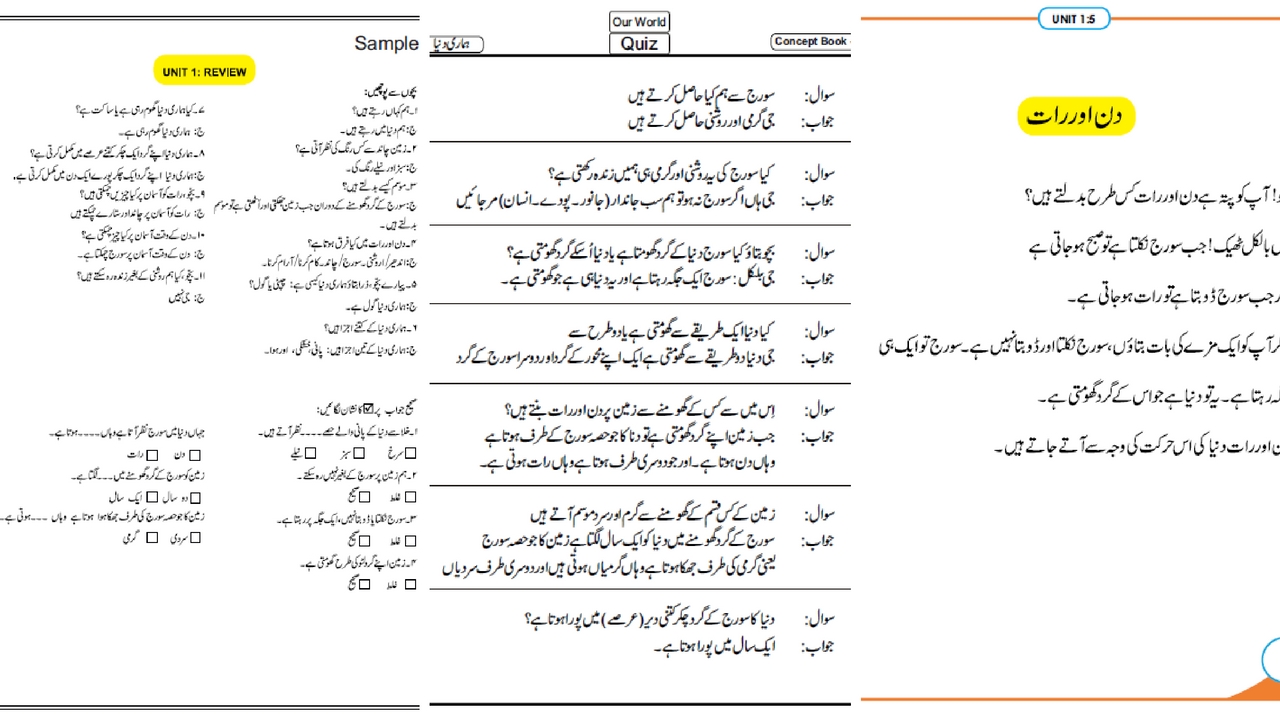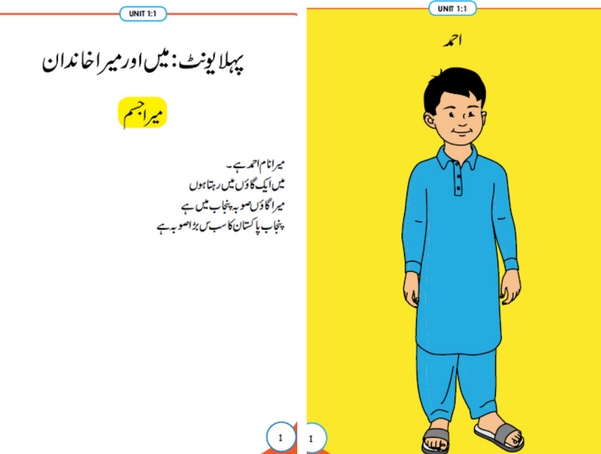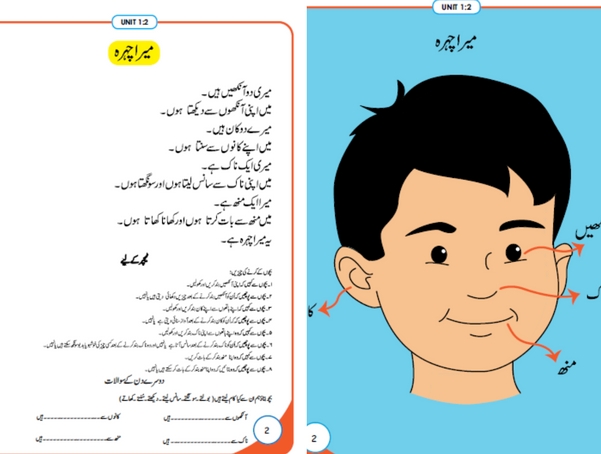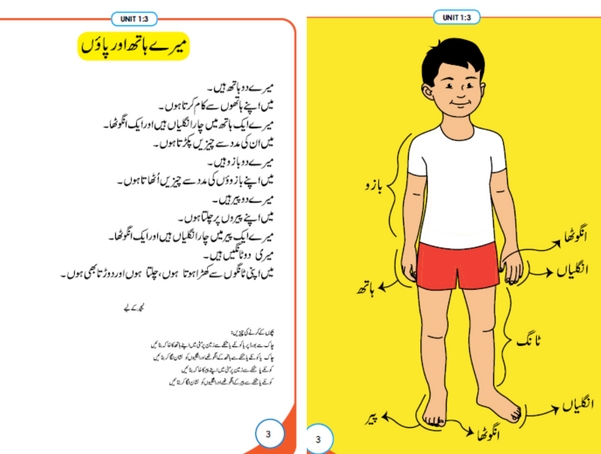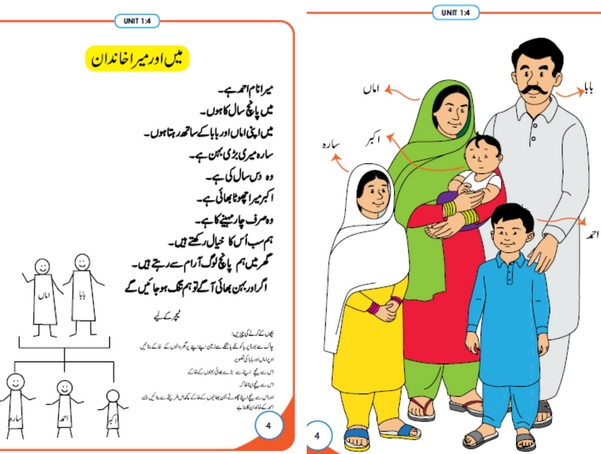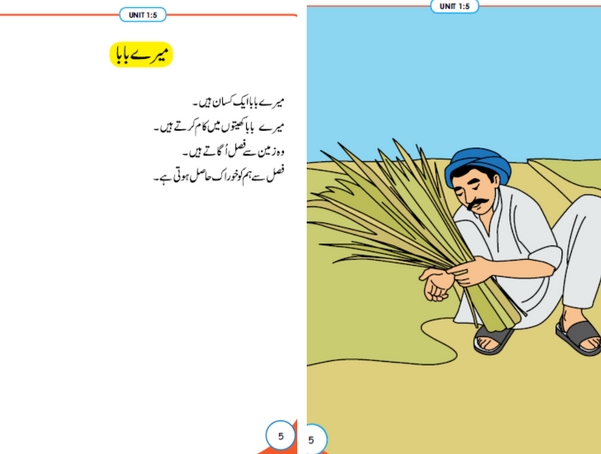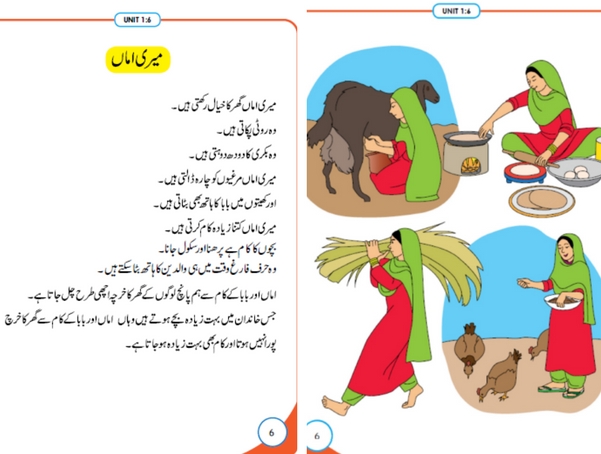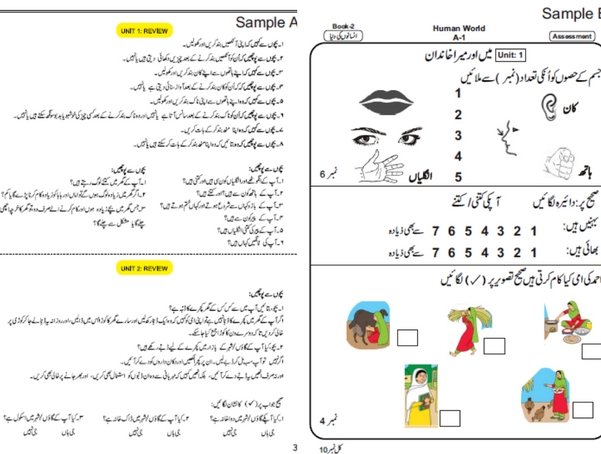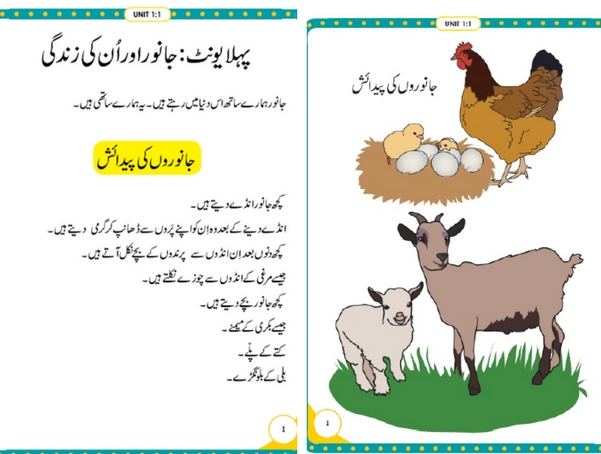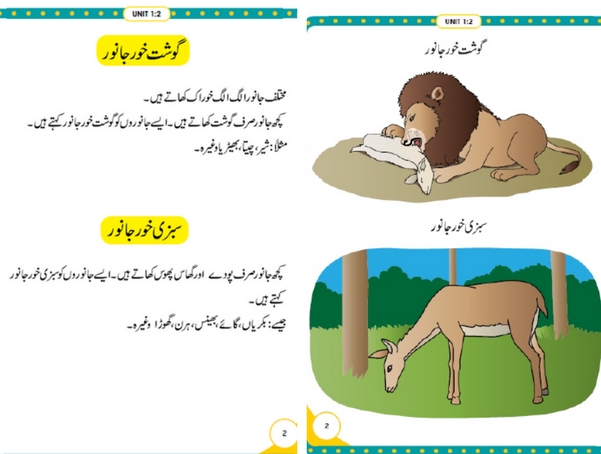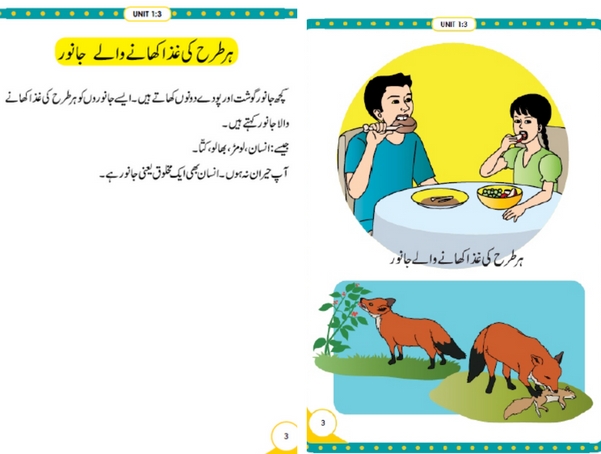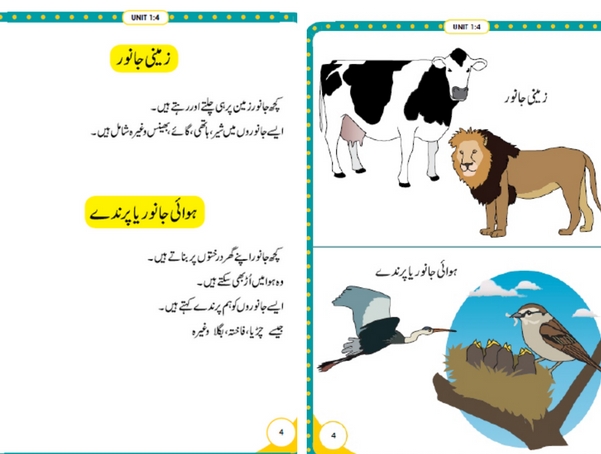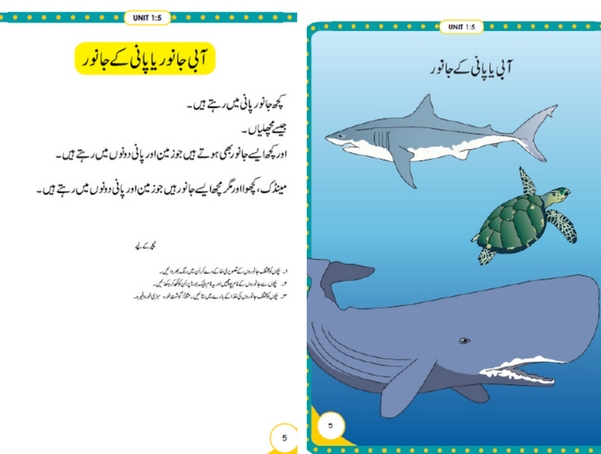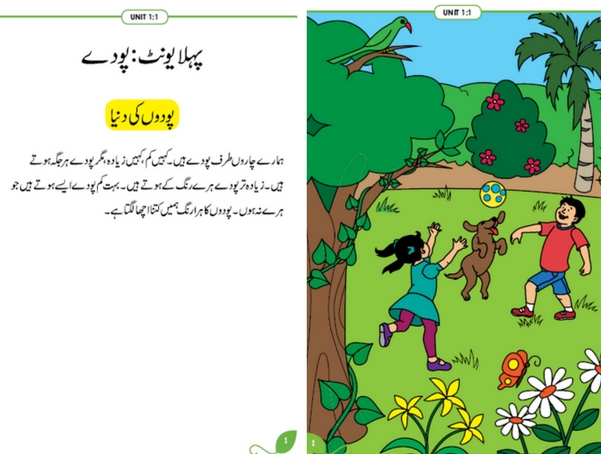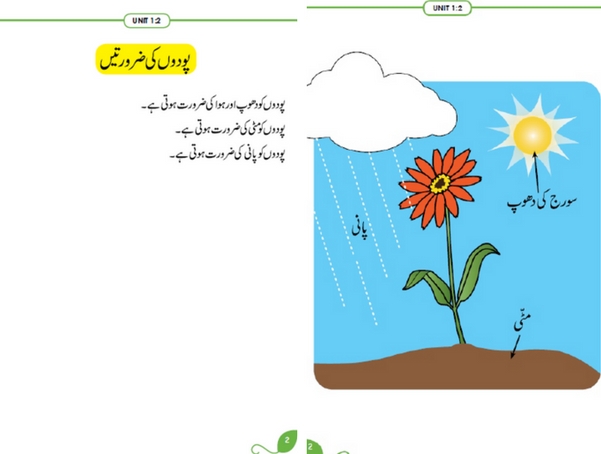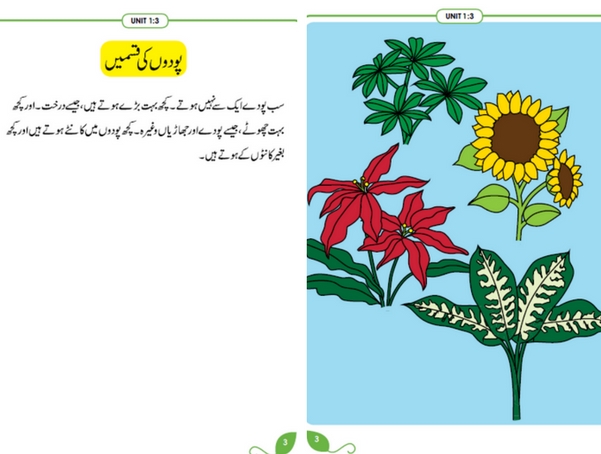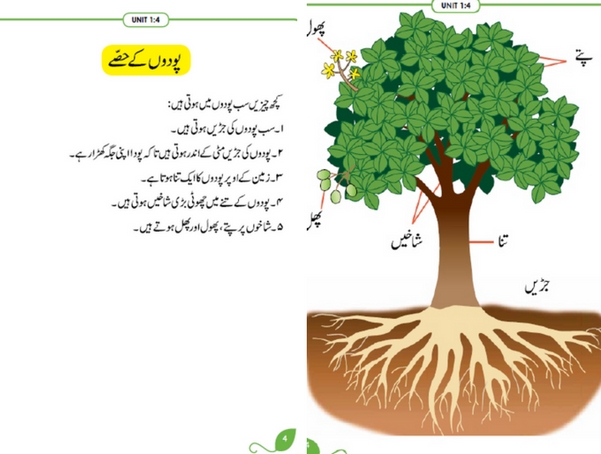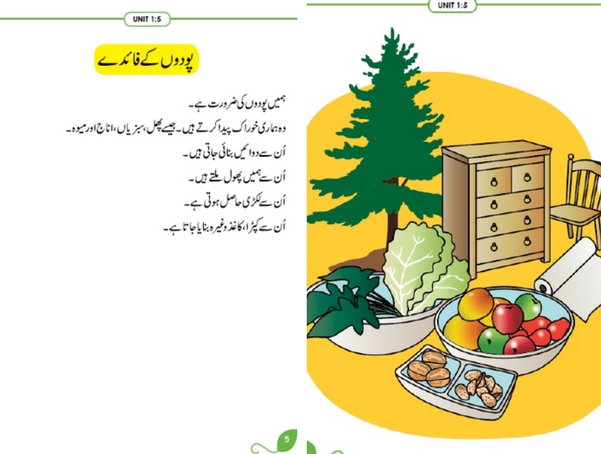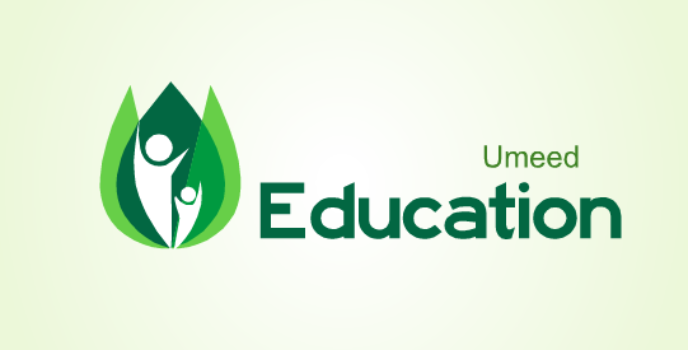Review of Skill Development Activity Books and Readers
Less-Priveleged children require a Head Start in the development of their pre-literacy skills.
Umeed Preschool Program identifies four stages of these essential skills and has developed 10 activity books and 3 readers for the pre-literacy of Urdu, English and Mathematics. At the end of the program, which usually can be completed in one academic year, the learner who has missed out on many pre-literacy experiences at home, can get a head-start and confidently start formal schooling.
In fact, these activities provide a kick-start for an adult literacy program as well!
Level Zero
This is the orientation workbook which introduces the world of literacy and lifelong learning to the child. All essential print forms in Urdu, English and Numbers are introduced to the learner at this stage. The learner is able to grip the pencil and move the hand freely while being introduced to the print forms of different shapes, letters and numbers.
In general, a four year old spends around 6 to 8 weeks at this level.
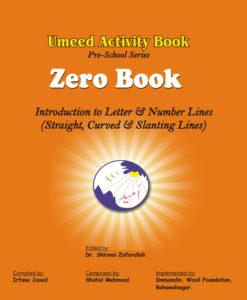
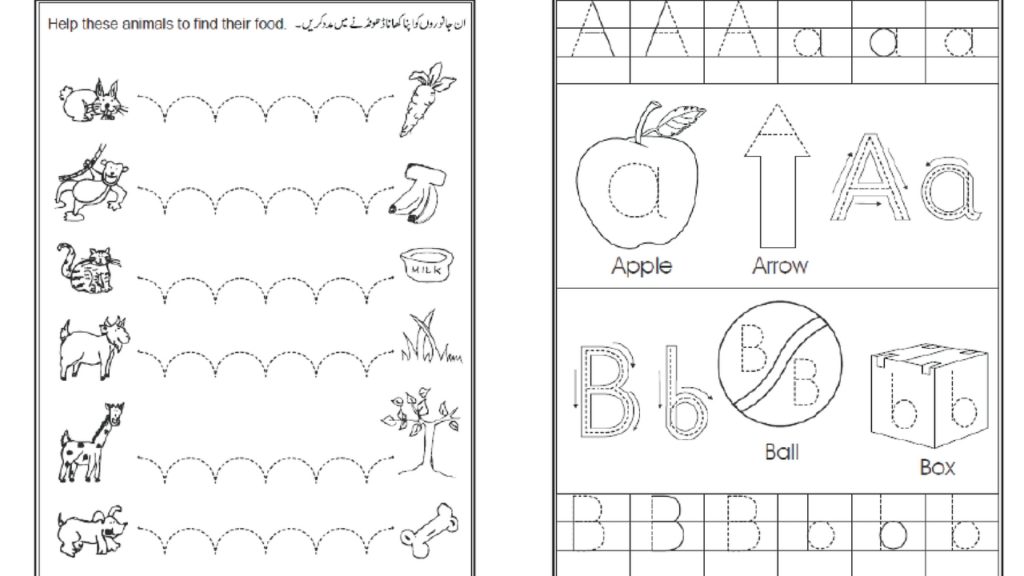
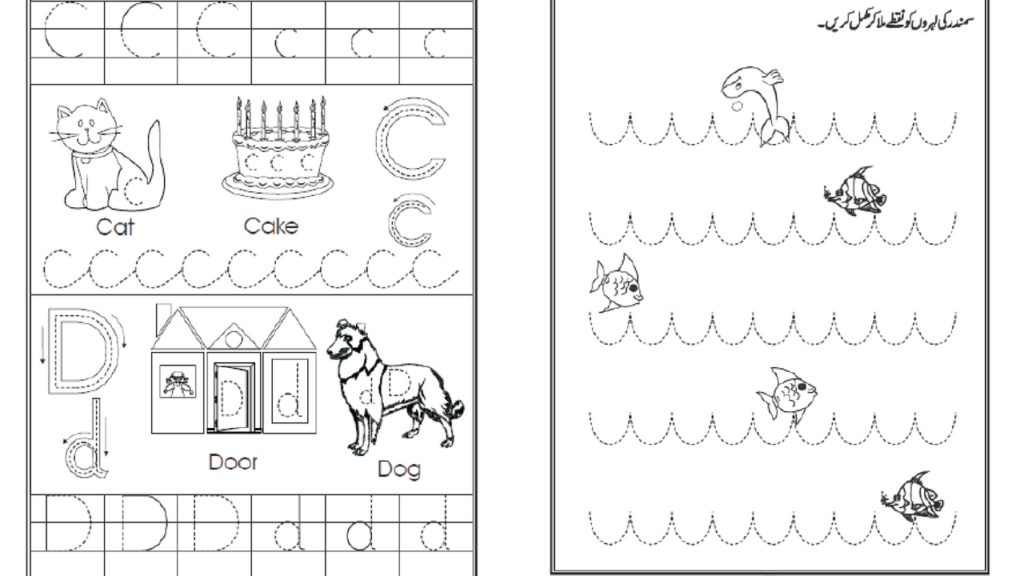
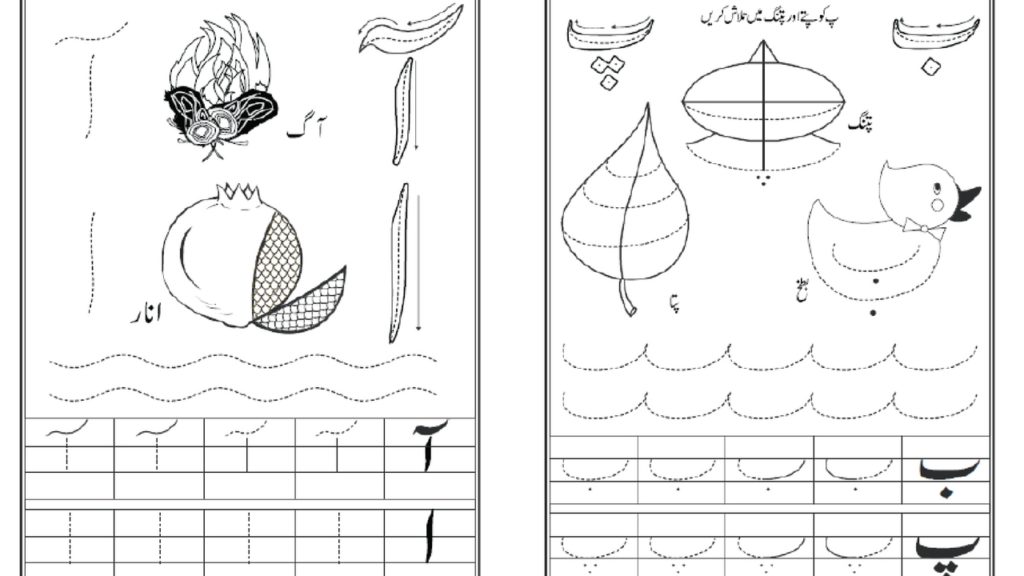
Level One
Once the learners get familiar with the print form and have good hand-eye coordination in using pencils, they start Level One. In this level the learners are introduced to the names/shapes of the letters of the Urdu Alphabet, English Alphabet and the first 15 numbers. Divided into 9 units this level is generally assessed weekly and completed in 3 months.

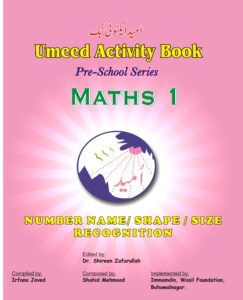
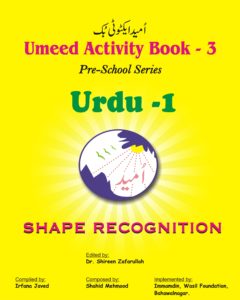
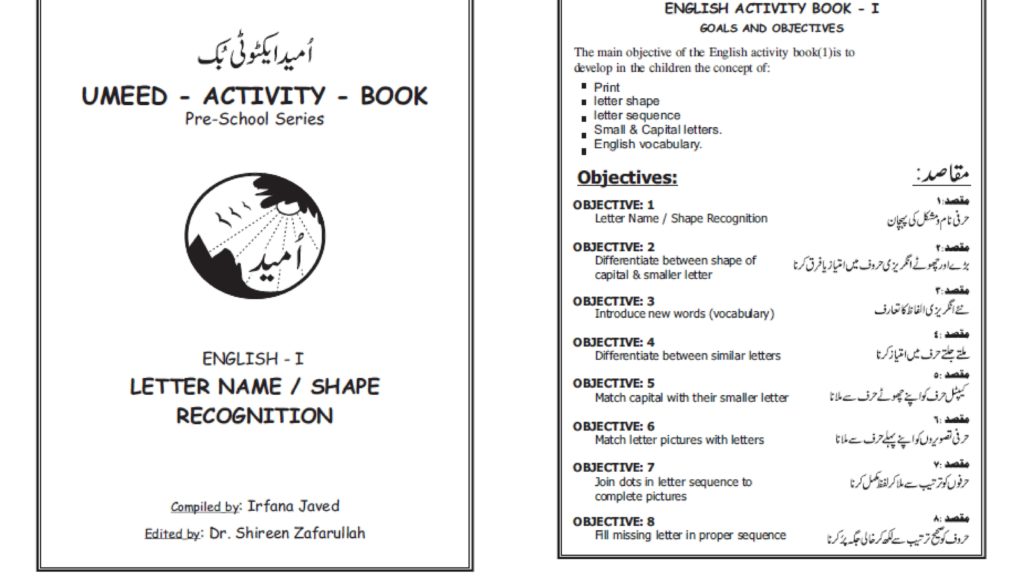
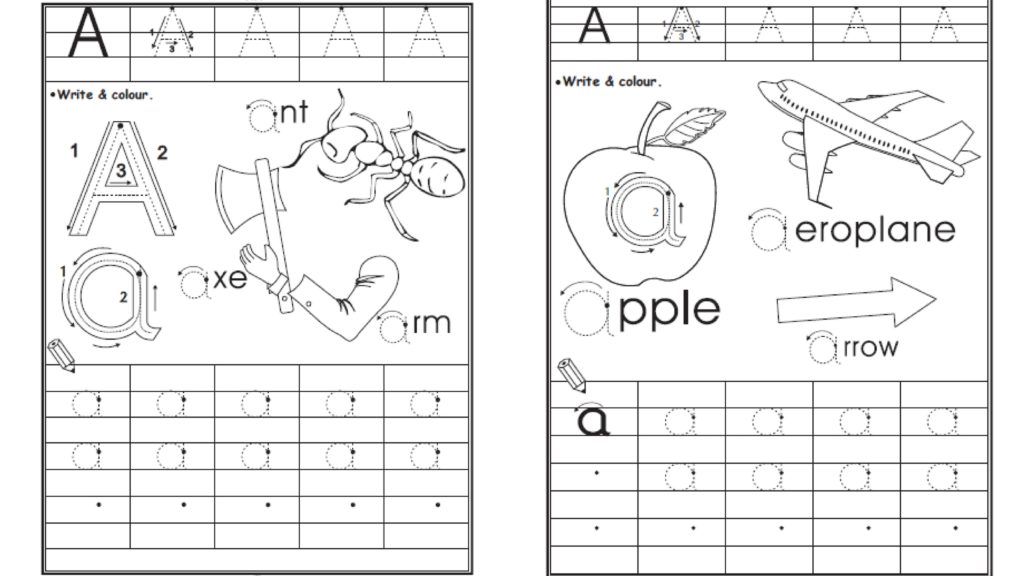
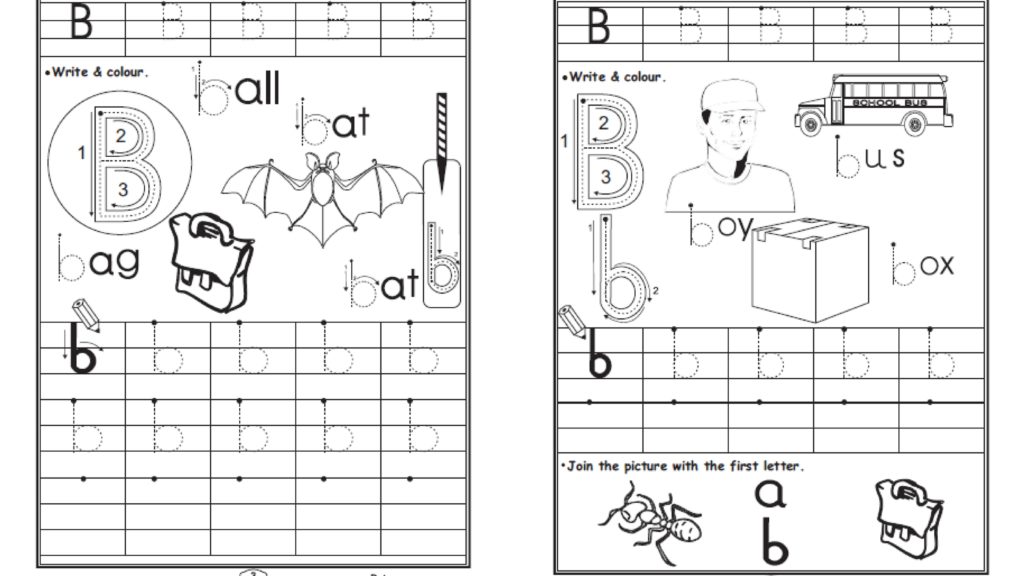
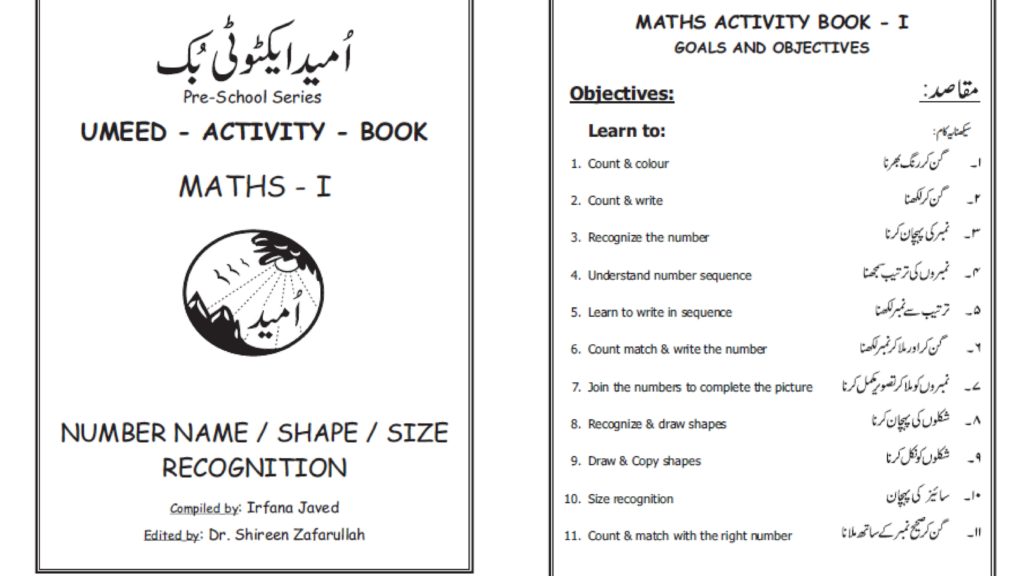
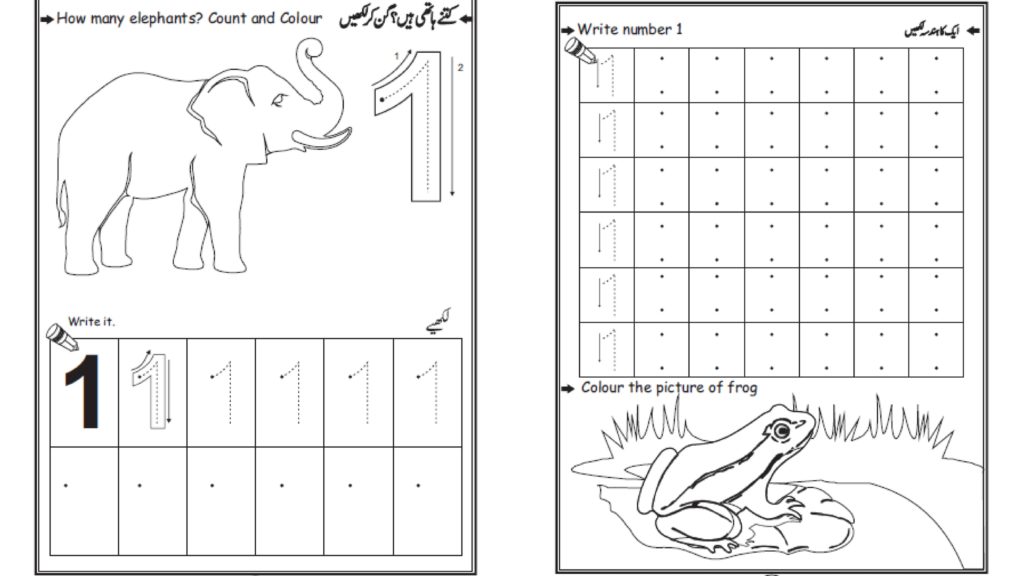
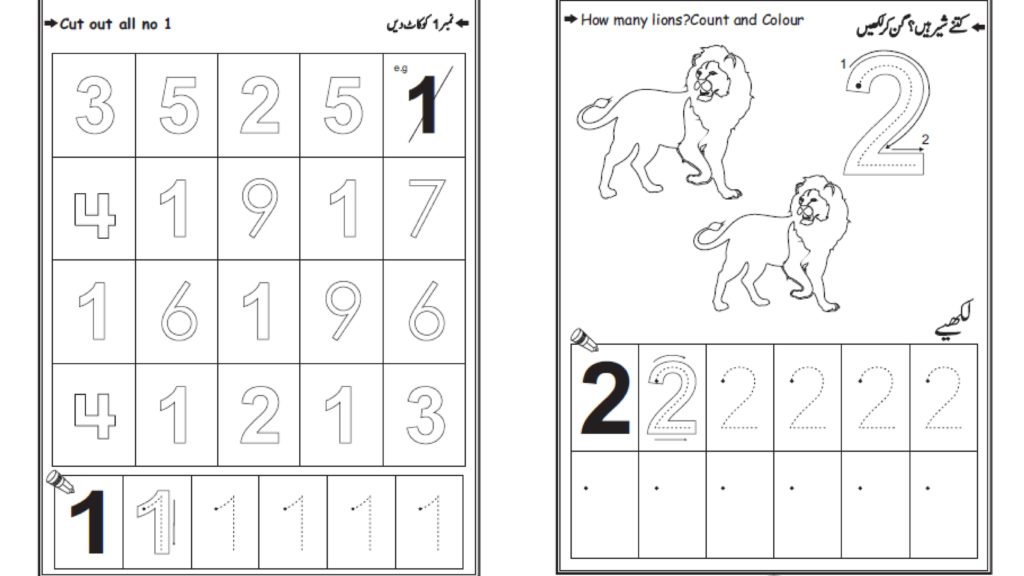
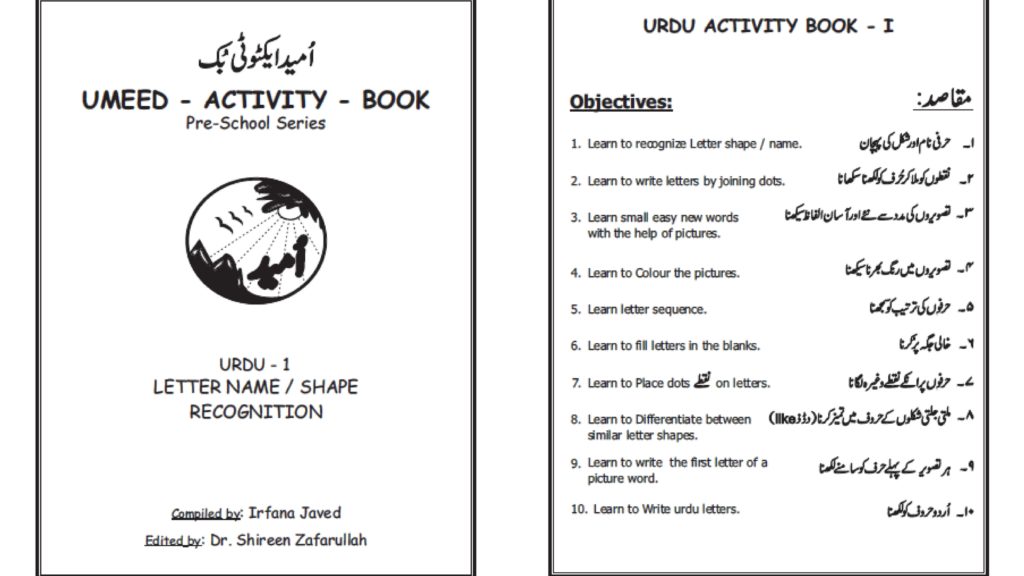
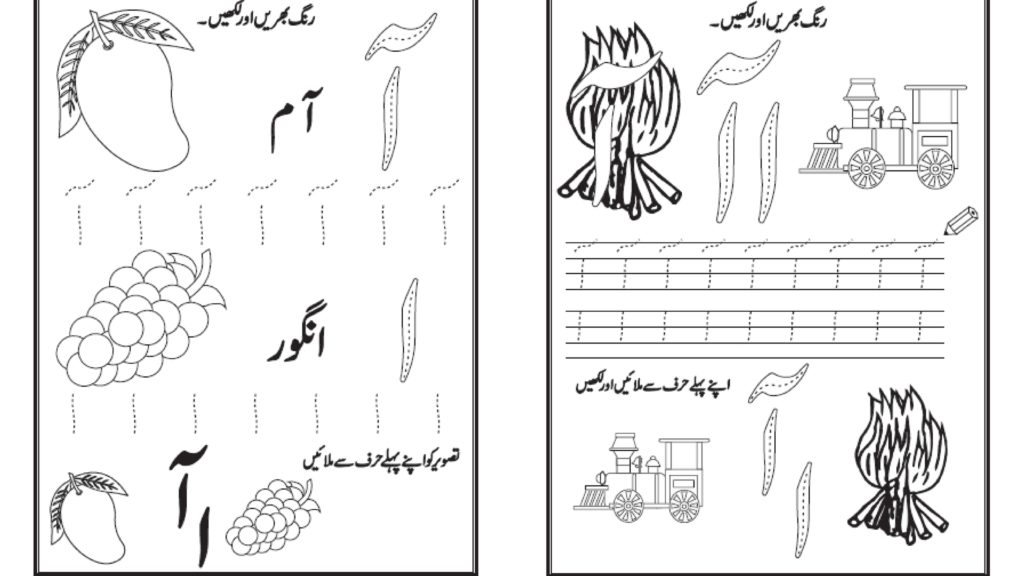
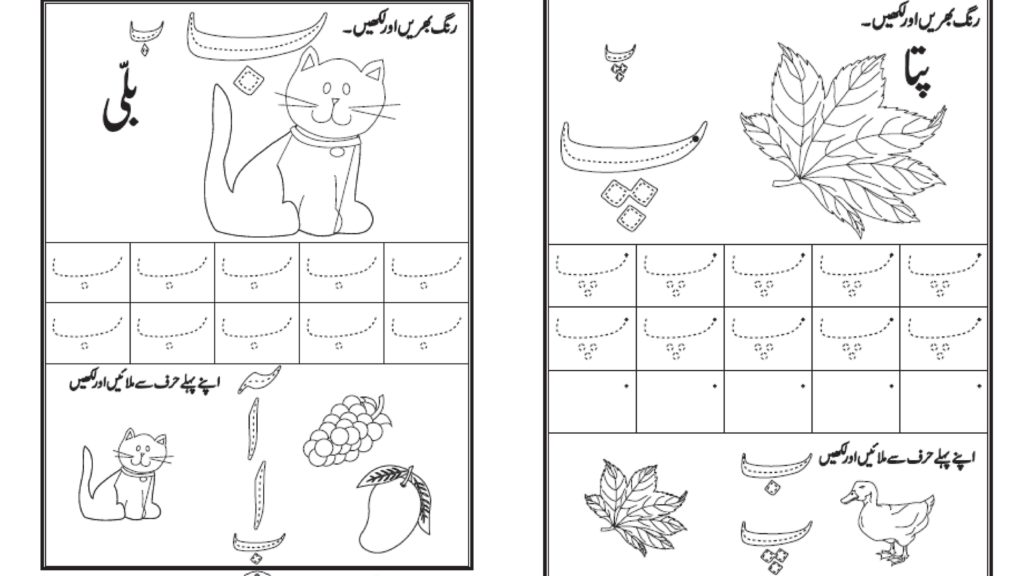
Level Two
Once the learner is familiarised with the shapes of alphabets, the learner is made to understand the different sounds of these alphabets. At this stage phonics are introduced. In this way Capital letters in the English alphabet and the Complete letter shapes of the Urdu alphabet are taken as the names of the letters, whereas the small letters in English and the half shapes (aadhi ashkaal) of the Urdu letters are termed as the SOUNDS or PHONICS of these letters. The learner is guided to recognize the different sounds of these letters especially the vowel sounds and how these vowels change the sounds when joined to different letters. This is a very crucial stage in the literacy process.
In Maths, the numbers and their sequence continue till a hundred, with names in English and Urdu reinforcing the language skill. Very simple addition and subtraction are started.
Divided into 9 units this level is generally assessed weekly and completed in 2.5 months.
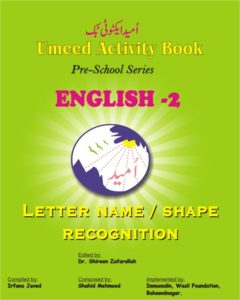
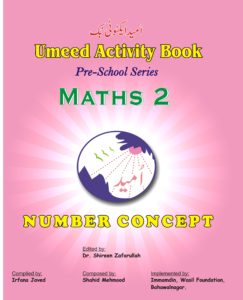
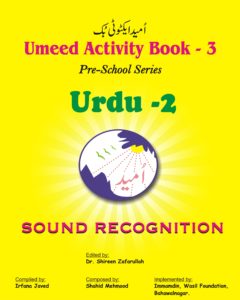
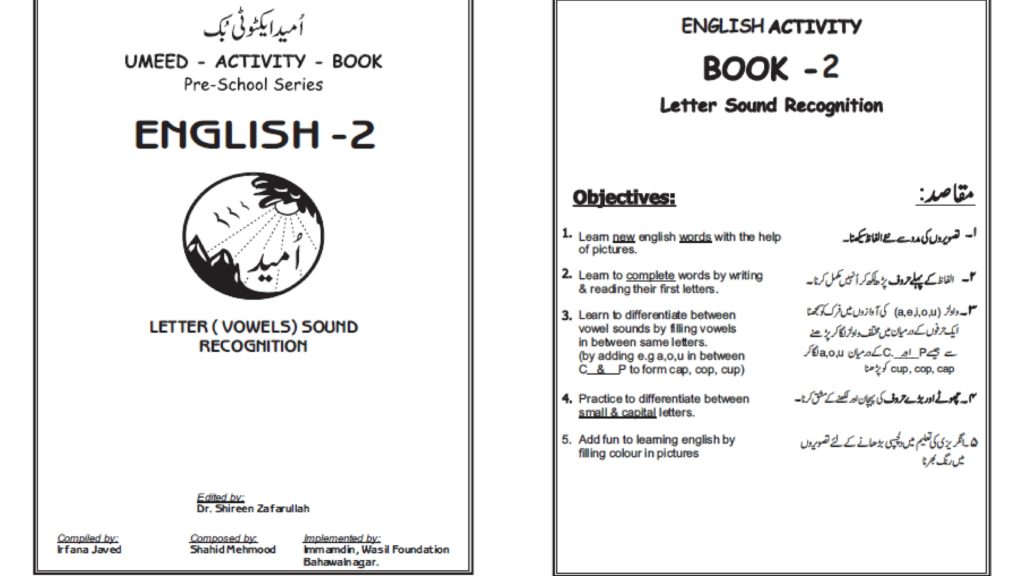
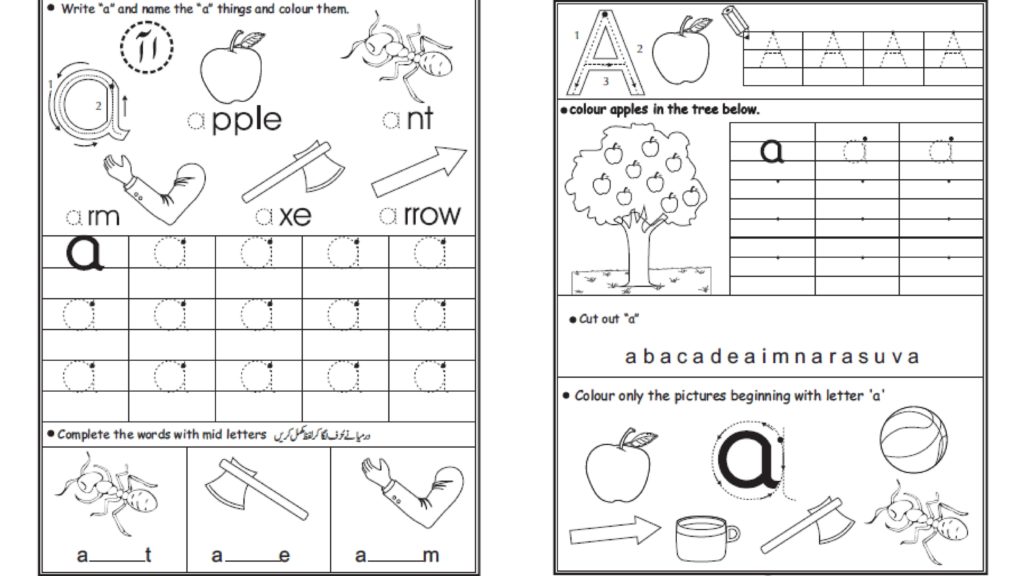
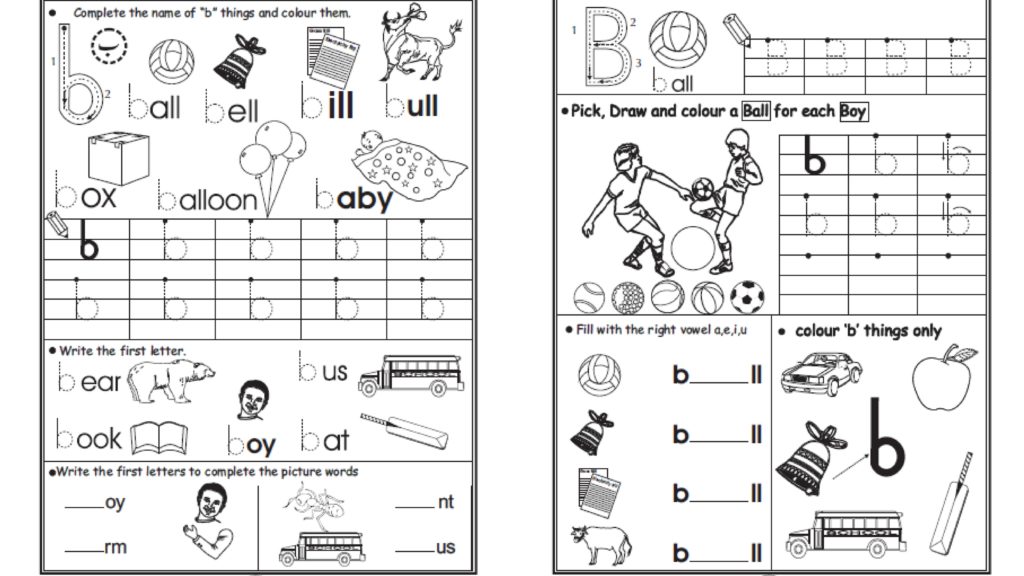
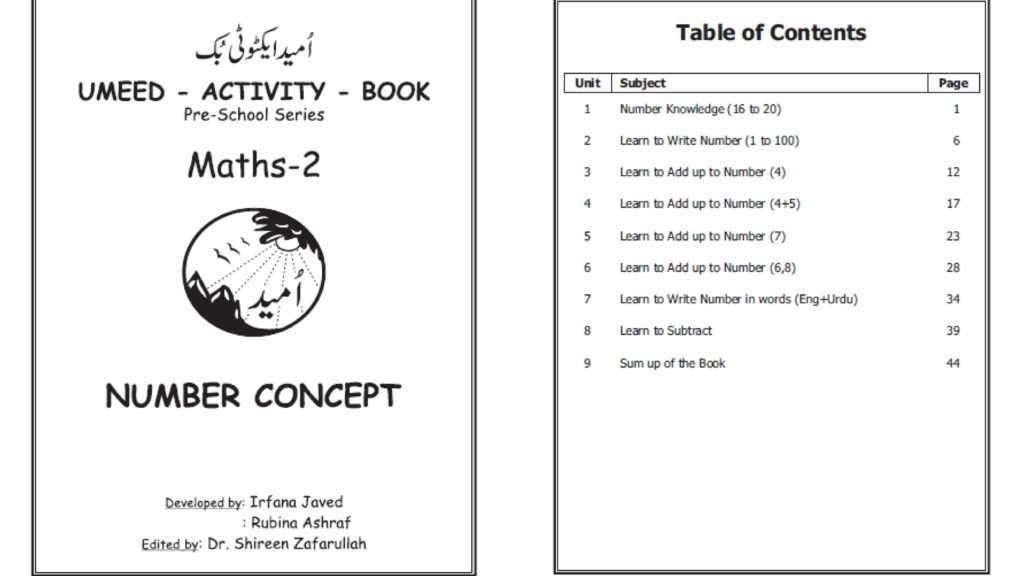
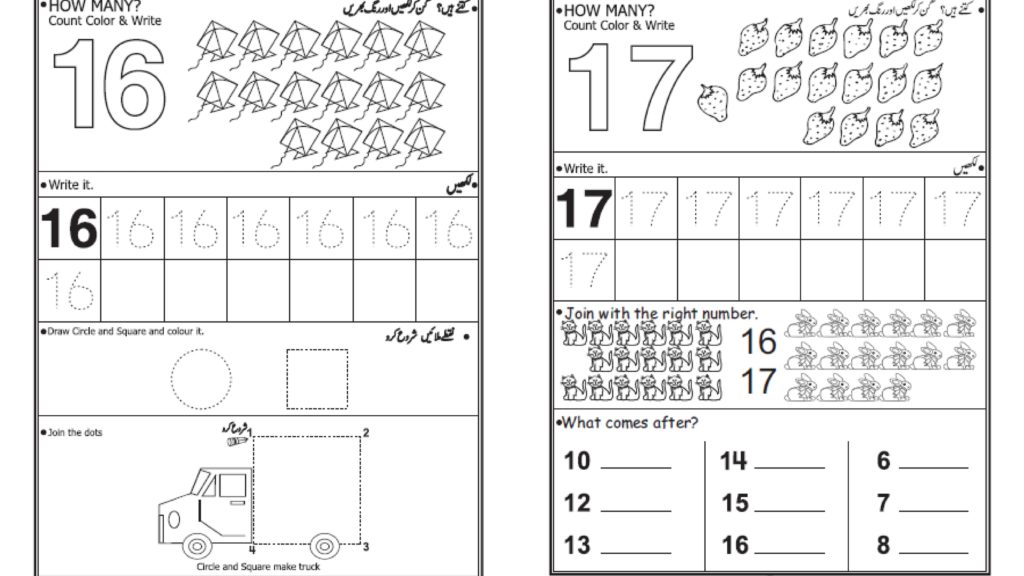
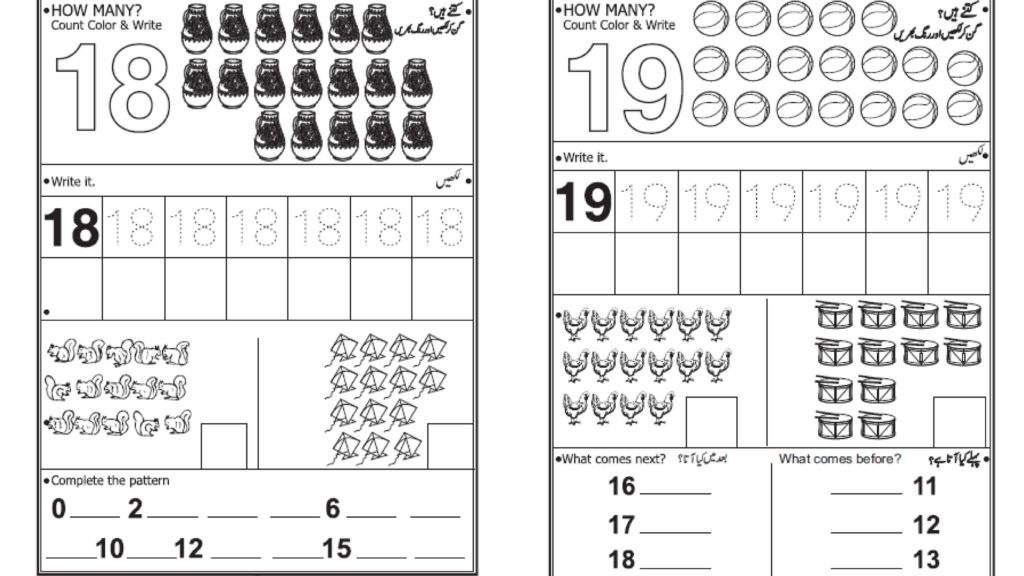
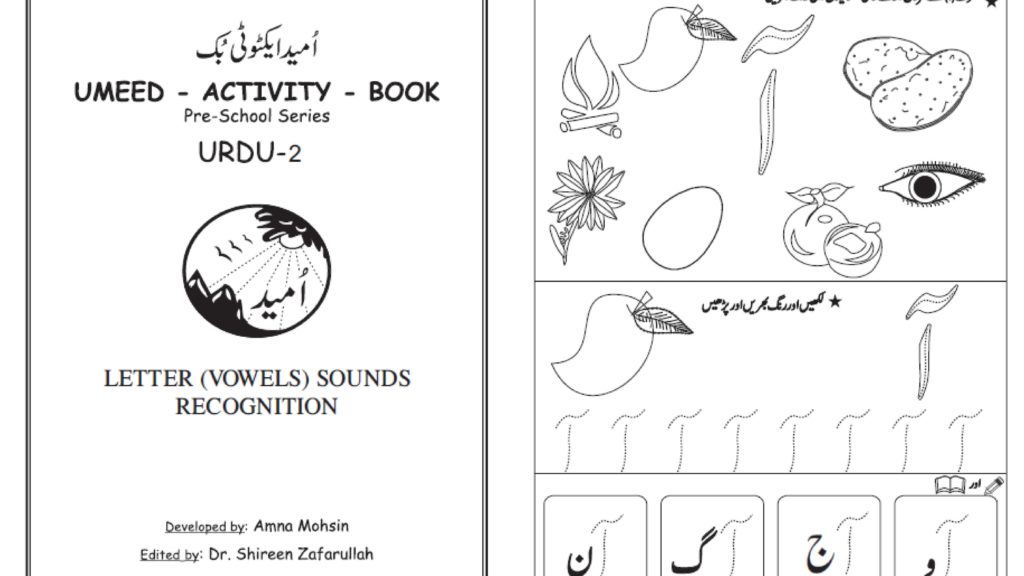
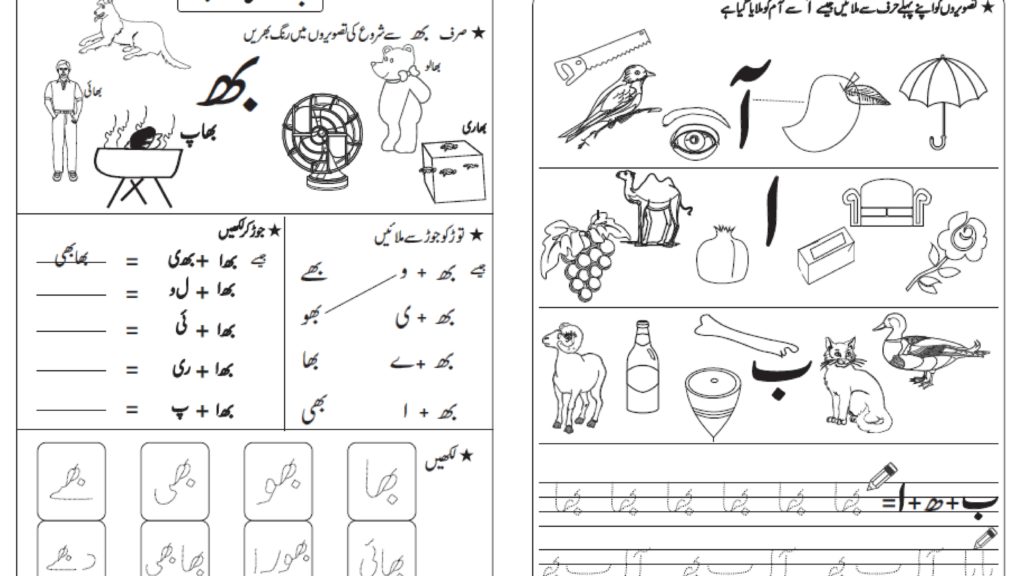
Level 3
This level is the culmination of the preliteracy process and makes the learner ready to take on formal schooling. Word and short sentence formation in both Urdu and English are the target and in Maths the learner has essential skills of greater and smaller, graphs and counting in 2s or 3s.
Divided into 9 units this level is generally assessed weekly and completed in 2.5 months.
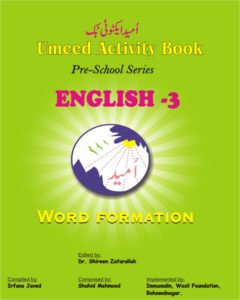
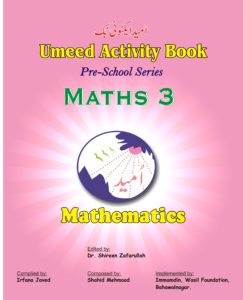
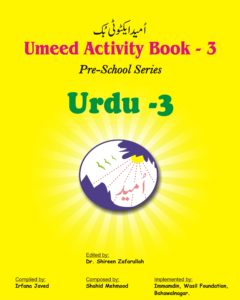
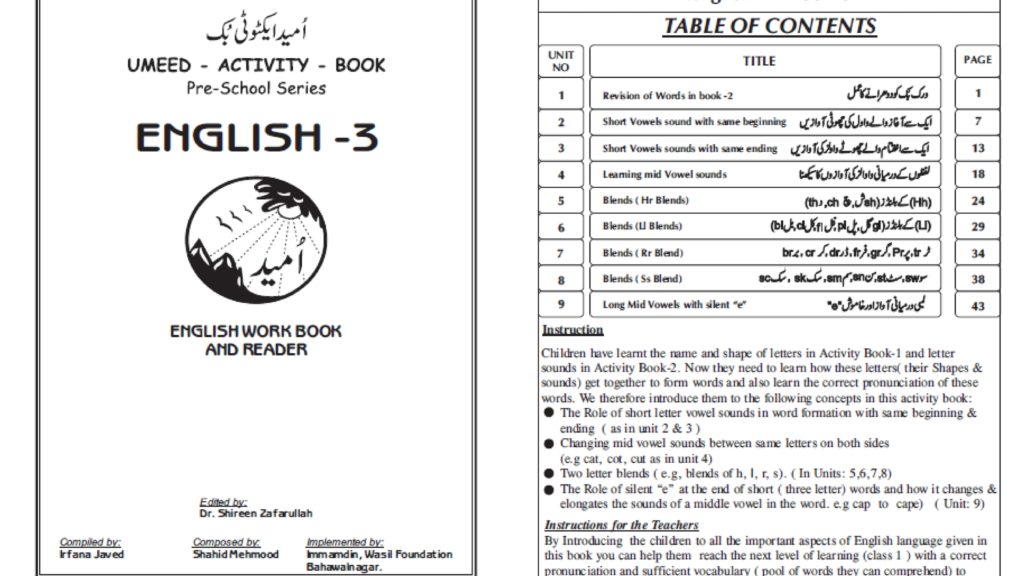
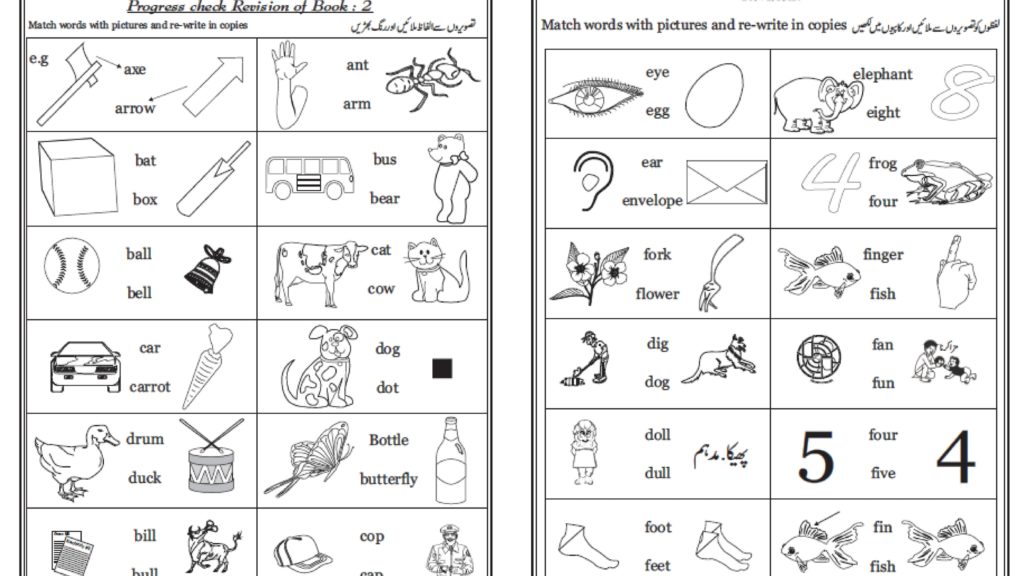
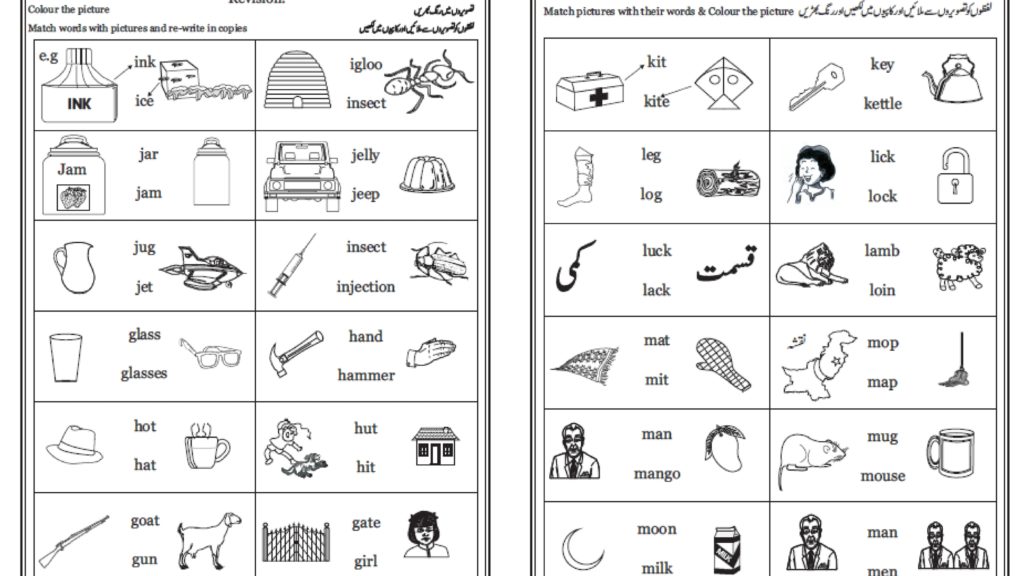
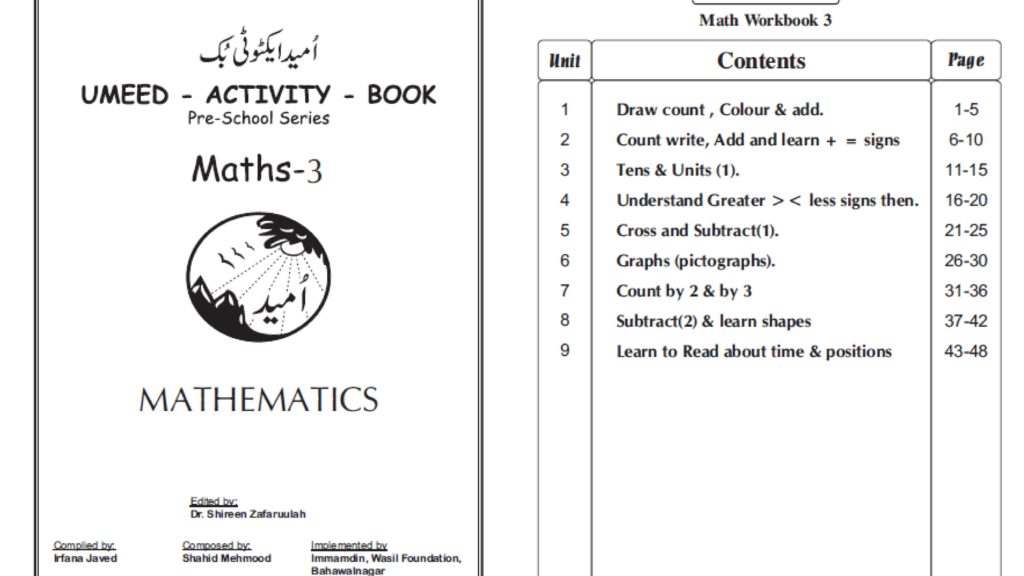
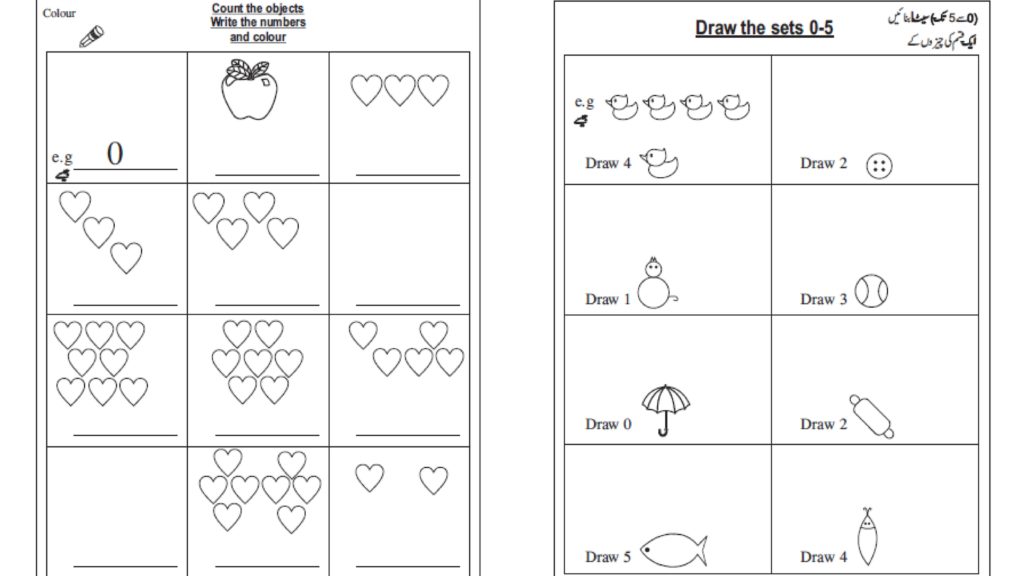
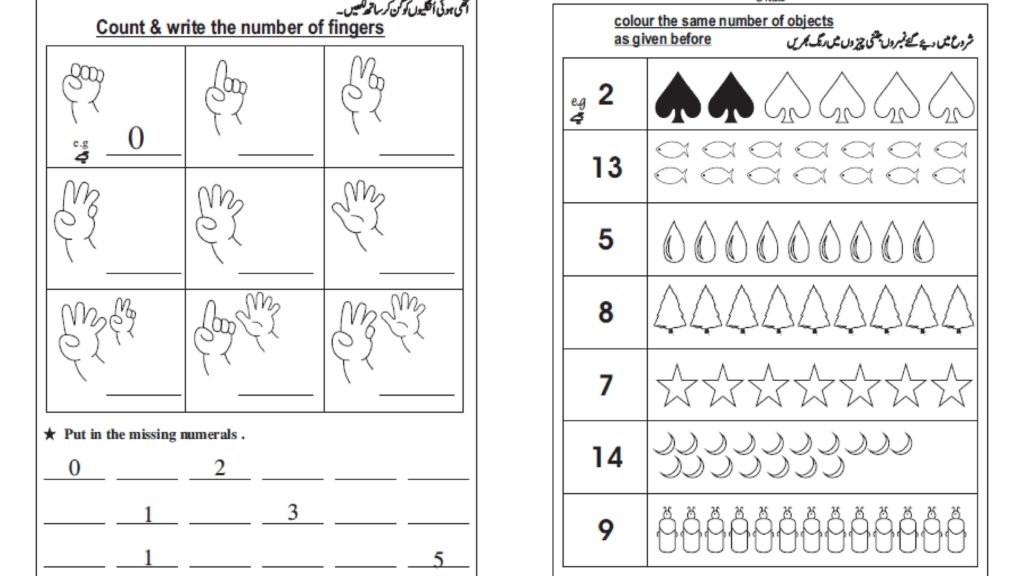
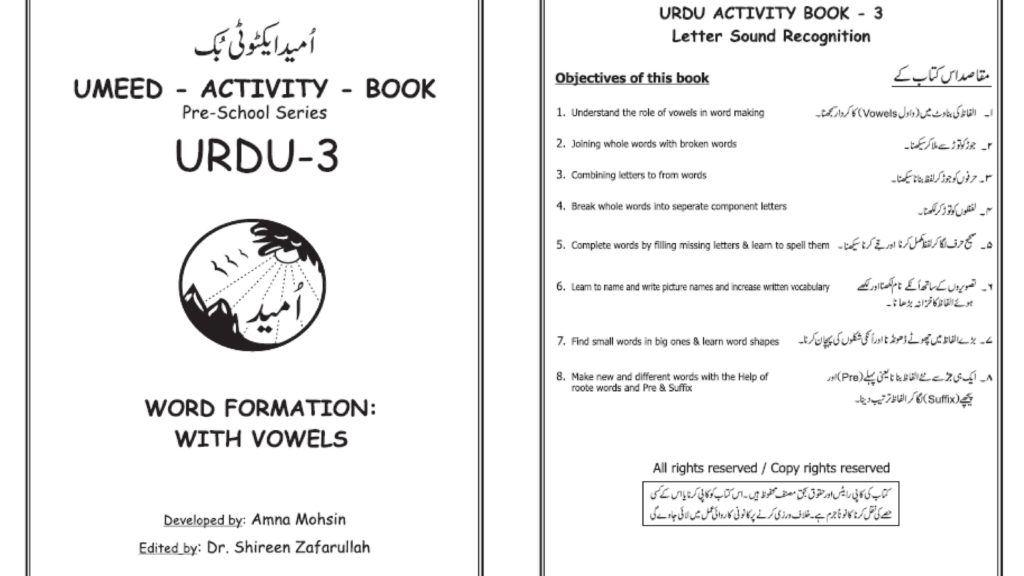
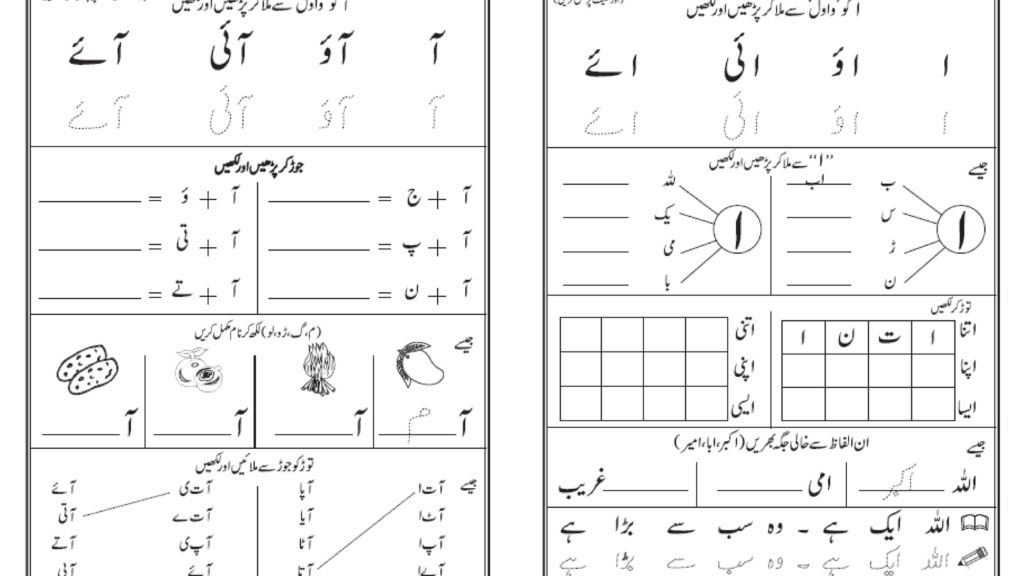
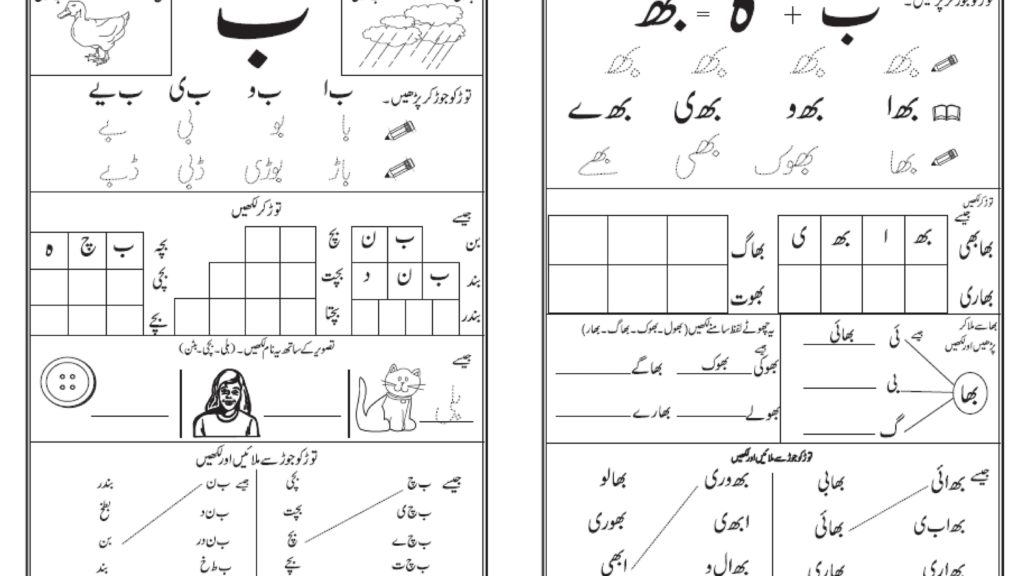
Readers
Three readers are also available as reference, reinforcement and review of all that is learnt.
English Reader for Levels 1 and 2
English Reader for Level 3
Urdu Reader
